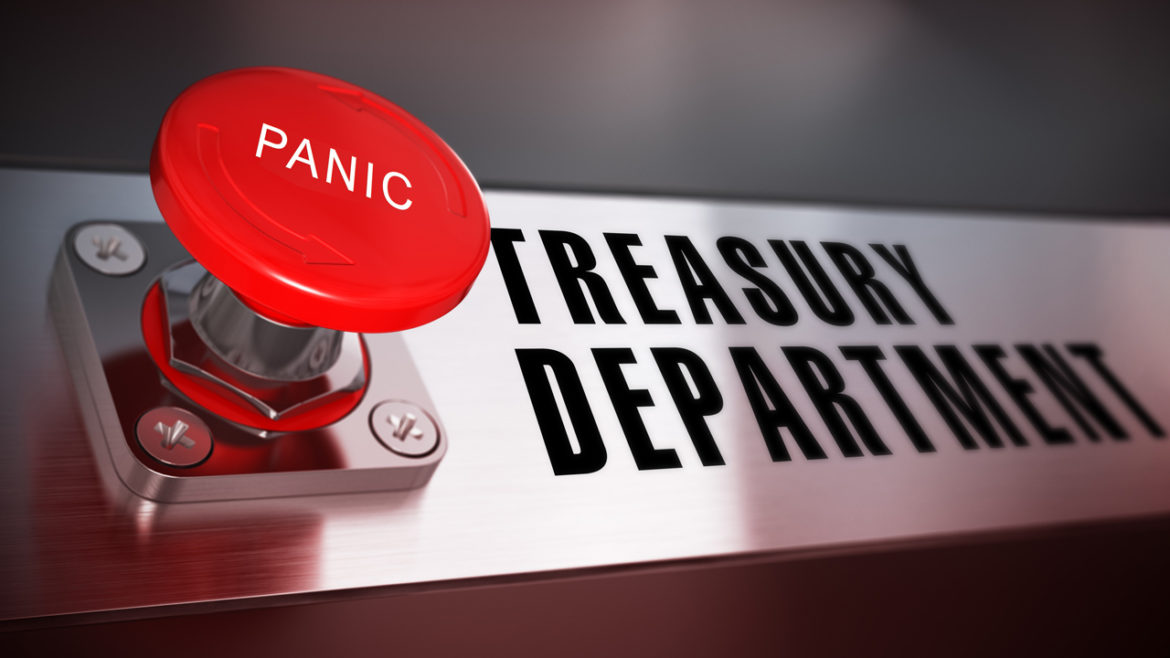Gold has all the potential to go unprecedentedly high. But silver will be gold on
Site:
Precious metals news
Data out of Germany, the Eurozone’s largest economy, showed incoming orders to the country’s factories fell for a third month in a row in April, pointing to at least one quarter of economic contraction.
Two banks—Citi and Barclays—raised their oil price forecasts on Monday, citing the effects of Russian crude oil sanctions and delays in the renewal of the Iran nuclear deal—without which there will be no meaningful increase in crude oil exported from Iran.
 Goldman Again Hikes Oil Price Target, Now Sees Barrel Hitting $140, Up From $125
Goldman Again Hikes Oil Price Target, Now Sees Barrel Hitting $140, Up From $125Jun 7, 2022 - 05:30:42 PDT
As a result, Goldman believes that oil prices need to rally further to normalize the unsustainably low levels of global oil inventories, as well as OPEC and refining spare capacities.
 Morgan Stanley Executive Warns of a Recession and Even Bigger ‘Paradigm Shift’
Morgan Stanley Executive Warns of a Recession and Even Bigger ‘Paradigm Shift’Jun 7, 2022 - 05:28:23 PDT
High inflation and recession fears will continue to dominate markets until a new business cycle emerges.
 High Gas Prices Are Being ‘Felt by the Lower Income Households in Particular’: BofA
High Gas Prices Are Being ‘Felt by the Lower Income Households in Particular’: BofAJun 7, 2022 - 05:25:34 PDT
Rising gas prices are impacting all American drivers, and lower-income households are bearing the brunt of pain at the pump.
In a note to clients published Monday, Morgan Stanley strategist Mike Wilson noted revisions to corporate profits keep dropping. And while revisions haven't quite gone negative, Wilson thinks investors will soon realize their own expectations for next year are simply too high.
U.S. stock futures fell in pre-market trading Tuesday after a profit warning from Target renewed fears about corporate margins.
The April trade deficit came in at -$87B. This was the first time in 5 months that a new record had not been set (pink dot below). The Net Goods Deficit remained below -$100B for the fifth straight month. This Trade Deficit comes on the heels of an absolutely massive -$108B Deficit in March. It’s likely that some of the April deficit was counted in March, so expect a rebound in the May number.
The Treasury increased the total debt by $125B in May after a brief drop in April. This brings the total debt increase so far in 2022 to $880B. More importantly, though, the cost to service the debt is exploding. Total annualized interest has increased by $40B or 13.5% since the start of the year!
After increasing gold holdings by 84 tons in the first quarter of this year, central banks continued to be net gold buyers in April.Globally, central banks added a net 19.4 tons of gold to their holdings in April.
Federal Reserve Chairman Jerome Powell, President Biden and other government officials insist the US economy is in a strong position to handle an inflation fight. In his podcast, Peter Schiff explains why they are wrong. In fact, America has never been in a weaker position to take on an inflation fight.
 TOP 10 GOLD MINING COMPANIES STRATEGIC REPORT: Important Fundamental Analysis & Is One A Major Buying Opportunity??
TOP 10 GOLD MINING COMPANIES STRATEGIC REPORT: Important Fundamental Analysis & Is One A Major Buying Opportunity??June 7, 2022
What are the most profitable top gold mining companies, and what does the fundamental analysis show? It is essential to understand the fundamental analysis of these gold mining stocks because I would never consider investing in two of them. Also, there may be one undervalued gold company that may provide a highly speculative buying opportunity...
Jun 6, 2022 - 12:49:37 PDT
The personal-finance guru has raised the prospect of hyperinflation and an economic depression, and trumpeted the next crash as a buying opportunity.
Early signs point to a higher Social Security cost-of-living adjustment for 2023. That may put more money in retirees' wallets and impact the program's funds.
Certainly, the private equity sector can be considered to be a bubble on many measures, with more than $6 trillion in assets under management and a huge amount of leverage fueled by the era of free money from 2008. But is the bubble likely to burst soon?
Topsoil is eroding at a fast pace due to climate change and poor farming practices that experts say threatens food supply, the environment and water security.
It’s almost too hard to believe.
All that washing, rinsing, and packaging of recyclables Americans were doing for decades—and much of it was simply being thrown into the water, polluting our rivers and oceans. How did it happen?
In 2020, BP shocked energy markets, declaring the world was already past peak oil demand.
Everything that the Biden Administration has done thus far has failed to curb rising prices.
Experts believe that high gasoline prices are likely to persist for the foreseeable future.
The likelihood that we see continued escalation (riots, and even revolutions) in the most impacted countries is rising daily.























